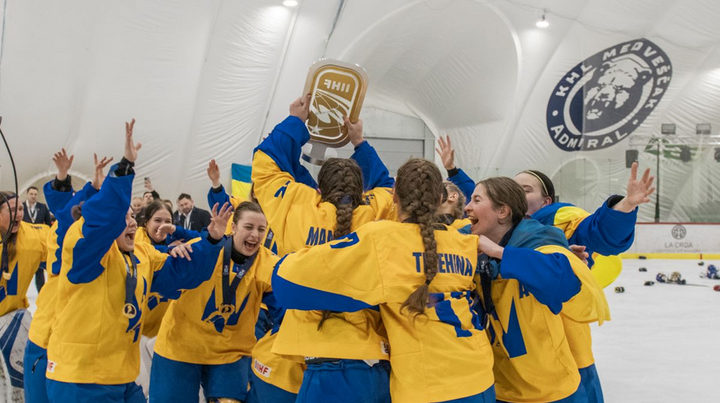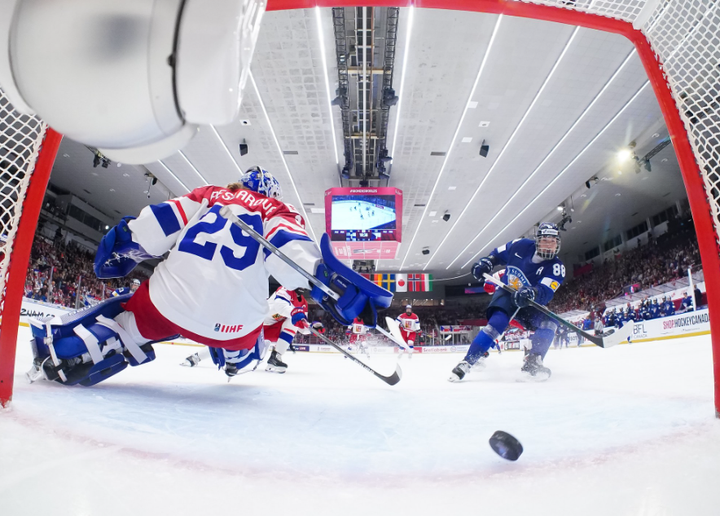Q&A with Whale General Manager Amy Scheer
We sat down with newly-instated general manager Amy Scheer to discuss her history in sports and her future with the Whale
Towards the end of August, the NWHL announced the hiring of Amy Scheer as the new general manager for the Connecticut Whale as former GM Bray Ketchum Peel would be pursuing new opportunities.
We sat down with Scheer to learn a little bit more about her — and about her goals for the Whale ahead of season six.
The Ice Garden (TIG): Tell us a little bit about yourself — where you grew up, where you went to college, that sort of thing.
Amy Scheer (AS): I grew up in New Jersey — my accent is 100% Jersey girl. I went to college at the University of Massachusetts in Amherst and have spent the last 30 years in sports and sports marketing all around New York. So basketball, men’s and women’s soccer, rugby, a little bit of hockey, doing it all, having fun.
TIG: What was your dream job as a kid growing up in New Jersey, and how has that dream evolved as you grew up?
AS: I grew up playing tennis. Tennis was my sport. And if someone said to me, like “What’s your dream job?” I think it probably would have been something in the tennis world. I did actually spend two weeks working Wimbledon one year for HBO Sports. So a small piece of my dream fulfilled, but tennis is a sport that has my heart. So, you know, in a perfect world, I’d love to run the USGA has not happened, but I’ll take my two weeks at Wimbledon.
But when I look at what I thought my career might be, I always wanted to run a team. And I was very fortunate to have done that from a business perspective with the Liberty. So I do feel from a professional perspective, like I I’ve kind of lived out a little bit of my fantasy of running a team and just just my career overall, I’ve been very fortunate and blessed and consider myself very lucky to have had the career that I’ve had so far.
TIG: You’ll be getting that chance [to run a team] again with the Whale, so that must be really cool for you.
AS: Oh, for sure. I mean, this this job is about filling my passion and giving back, right? Like, just being able to do that at this stage of my career. There’s no place I’d rather be.
TIG: Exactly. So did you have any female role models as a woman in sports (whether they’re athletes, team executives, anyone else)?
AS: I was not quite old enough to be your Title IX baby, but you know, Chris Evert and Martina Navratilova were two big athletes that I admired growing up. Now, I think from an athlete perspective, athletes are so different. I think female role models I love...Serena Williams and Venus Williams. I think what they’ve done for social justice and how they’ve represented themselves has been amazing. And I love that they have interests outside of sport. And they’ve changed, I think, the conversation around female athletes.
But when I was growing up there, there were no female executives. When I got my first job, my interviews really were about trying to get women in sports. And that literally was one of the conversation questions around my interview was, “Listen, we’re trying to get more women in sports. You know, why do you want to work in sports?” and it was a big conversation. So there really was no one in sports on the business side to look up to at that point.
TIG: So you’ve worked with the WNBA, the NBA and the MLS. How do you think those experiences will help you as you take on this new role with the NWHL?
AS: Well, I think it helps me understand the different types of fans out there. It helps you become more nuanced in your messaging to the fans. Having worked in women’s sports before I think it gives you a head start on how to market.
When the WNBA started, everybody said, “Oh, you know, it’s just going to be basketball fans. If you’re a fan of basketball, you’re going to be a fan of the WNBA.” And it just wasn’t that simple.
Marketing to women in general is much more complex too. It’s more of a group sales business and selling groups is painful. It takes much more time than other types of sales.
So I think just having the background specifically in women’s sports gets me off to a head start in understanding the type of fan, the type of groups, the type of people who want to come out and watch women’s sports.
TIG: Do you have any specific goals for this upcoming season when you’re at the head of the Whale?
AS: For me every day, I want to be the best in the league. So no matter what that entails, I want to win on the ice and off the ice. Every day I want to show up and be the best, have our staff be the best, and really set the standard for the league.
And listen, I’ve been doing this for a week and I have a lot to learn and I have been in conversations with all the other team teams and presidents. So I’m going to learn a lot about what they have seen and what they have done, and then take those learnings and try to make them work for us.
...every day, I want to be the best in the league. So no matter what that entails, I want to win on the ice and off the ice.
But at the end of the day, I just I want to set the bar. And that’s not to take anything away from any of my other colleagues or peers, that’s just how I like to be. I like to lead the league in everything.
TIG: Would you say you have your sights set on an Isobel Cup?
AS: [laughs] That is up to the coach.
TIG: Do you have any words of encouragement for women who hope to follow in your footsteps working in sports?
AS: Just put your head down and work hard every day.
I think the sports world has opened up to the fact that it’s a great place for men or women. And there’s no reason why you can’t succeed in the business of sports. And so, you know, go to school, study, work hard, get an internship, volunteer for anything and everything, and find the all the ways for you to stand out amongst your peers.





Comments ()